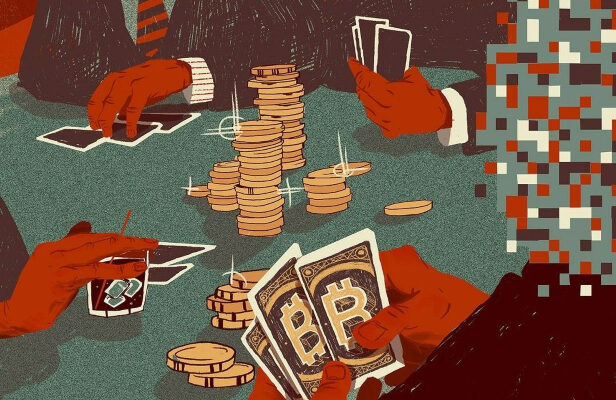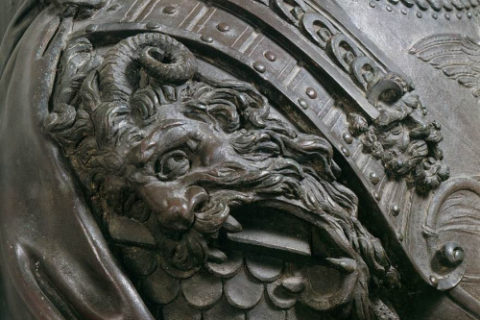I have two friends who are extraordinarily successful in the tech world. One is a high-end software engineer effectively retired at 33 and trying to find his next passion project. It’s a little annoying. The other runs a company that uses blockchain technology for impenetrably complicated tasks mostly centered around cryptocurrencies for businesses in the financial sector. I bring them up because while I can vouch for their integrity, they are terminal true believers in all things tech and especially in the freedom promised by cryptocurrency and will be until the bitter end.
The bewitching case for crypto is compelling with private and institutional investors convinced wealth is almost within reach and dissidents and scalawags convinced the prying eyes of governments are finally outside of reach.
The champions love crypto for three main reasons. The first is that the tech behind it allows for decentralization eliminating the need for intermediaries and central authorities, reducing the risk of fraud, censorship, and control. Individuals can privately do business with each other creating, they believe, a more efficient and secure financial ecosystem. Whether this is true is another conversation with evidence emerging that the secure and private nature of these transactions are more vulnerable – perhaps by design – than we think.
Secondly, crypto eliminates borders and banking hours with fast low-cost transactions around the world. For entrepreneurs and those forging unapproved alliances, there are wide-open opportunities previously impossible. This is obviously attractive for organized crime and terrorists (real and imagined) and a big reason why governments are hell-bent on regulating or outlawing crypto.
Finally, while no serious person thinks crypto will be used as money to buy things like groceries, it is a vehicle for speculation and making a buck. Like precious metals, crypto is something you buy low and sell high and then convert into dollars so you can buy butter, bullets and Bugattis (if you have any class, a ‘69 Challenger).
Reality Check
It’s hard to pinpoint how many crypto currencies there are actually, but at the time of this writing, there are nearly 23,000 with a total market capitalization of $1.1 trillion. The industry that’s sprouted up to support it all is rank with zealots and scammers. FTX’s Sam Bankman-Fried is just the most notable.
The block-chain technology behind crypto making this proliferation of legitimate as well as Ponzi-level nonsense possible is not only accessible to the smart and clever, but because block-chain has other non-financial uses, crypto isn’t going away which is why governments and the finance industry must pay attention to it.
The State and The Bank are gods and, as such, can’t tolerate lesser gods. Look past the fact that some of the most vocal critics of crypto are the same gatekeeping overlords who are architecting the massive gaps between the ultra rich and everyone else. Their critiques nevertheless highlight why the government and global financial controllers are rolling out a command-and-control plan.
Everyone’s favorite lizard king, Jamie Dimon, the head of JPMorgan Chase & Co, the largest bank in the United States, tells you how this will end. “I personally think that Bitcoin is worthless,” he said in October 2021. All the while his bank continues to offer products related to Bitcoin and crypto. “Our clients are adults,” he said. “If they want to have access to buy or sell Bitcoin, we can’t custody it.” He shares the belief of other Wall Street titans who think that sooner or later states will start banning Bitcoin and other crypto currencies and it will be done away with. “There will be no real non-controlled currency in the world,” he said. “There’s no government that’s gonna put up with it for long.”
Warren Buffet rejects Bitcoin as well. “I don’t have any Bitcoin. I don’t have any cryptocurrency and that won’t change.” Bitcoin is an illusion and lies, according to Buffett, and has no unique value because it produces nothing. “You stare at it all day and little Bitcoins come out,” he said. “Or something like that. It’s delusional.”
Between deadlifts and trying to convince people that the Lebanese are not Arabs, Nassim “Black Swan” Taleb, did a 180 on Bitcoin and crypto. He was an early superfan and made the case (as do current cryptoholics) that Bitcoin is a back-up option against governments abusing their currencies. He now rails against it and its supporters calling them idiots on Twitter. In a detailed paper he authored named The Black Paper, he makes a persuasive case echoing people like Jamie Dimon and Warren Buffet concluding that Bitcoin’s long-term value is “precisely zero” and that Bitcoin has failed as a back-up option and currency, his original hope for the technology.
Don’t Get on the Bus and Don’t Take the Free Cheese
In 2020, your next president, Gavin Newsom, revamped an existing California finance oversight entity and renamed it the Department of Financial Protection and Innovation. This department will be modeled at the federal level. In the name of regulation and consumer safety, digital currencies are high on their list of things to rein in.
Take a look at the Federal Reserve’s not so reserved signaling about what is in the works with a central bank digital currency (CBDC). It is coming. The authoritarian goal of having true and utter control of the populations they fear and loathe is tantalizingly within reach.
A cashless society dependent on a federal digital dollar means not only the ability to see everything you do, but tax at will and penalize and withhold as it wishes. Step out of line and your account is frozen. If you are buying too much meat or you’ve reached your allowable travel limit, well, they can throttle your behavior there as well.
This has likely been the end-game plan since the murky and mysterious first appearance of Bitcoin. Whether it was the creation of the CIA or the FBI (as more than a few sober investigators allege), the organic altruistic origin story of the very thing that has now handed the ultimate tool of dominance to government is too silly an idea to be believed in context of reality.
I doubt we’ll wake up one day to the announcement that the switch has occurred. More likely, as proven with the COVID experiment, half the population will willingly sign-on to the conveniences of a CBDC by simply making it available, especially if it is incentivized and pre-loaded with “dollars.” There will be no difference day-to-day between using a CBDC card and a credit card. The 20% receiving public assistance won’t even notice that the fine print on their checks and WIC cards has changed. It will be seamless.
The conversation Southern states need to be having now is fast-tracking state minted and backed currency and making peace with how to benefit from the recent announcement of the BRICS intention of creating a USD killing gold-backed currency that will accelerate the transition.
As a free person, resist as long as you can. The moment you comply, the cell door will close behind you. Figure out soon how you can be of real use in real life to the people in your real and local community. Figure out soon how you will feed yourself. Don’t take the free cheese. Don’t get on the free bus-ride to the camp that looks so pleasant in the brochure. Don’t receive the beast’s mark.

‘Cause down in Alabama, you can run, but you sure can’t hide.






My version of Vegas puts the odds on our economic high priests at the Fed doing some variation of the following to both kill cryptos and use their spilt blood to bring their CBDC to life: allow anyone in the US or its vassel states to trade in their cryptos for the CBDC at parity if they do it now, while threatening with severe prosecution and confiscation anyone who doesn’t do so right away.
The way that one could be made to engulph and facillitate the other (after the other helped people get used to the underlying concept) also makes me very inclined to think that that was the plan all along.
By the way, Dr. Lamar, do you know the Southern writer Perrin Lovett (Dr. Clyde Wilson’s Shotwell Publishing just put out a title by him)? Because we both write for Dr. Wilson’s Reckonin’ (he regularly, I once in a while), I’ve exchanged emails with him on various topics and at one point he was looking to contact you about a topic we were discussing and that I was writing on (and which you’d written about in some previous ID articles). I only write on the side in my spare time and don’t have a website, but could you email him at his if you have a minute to chat?
His site’s listed email: perrinlovett@gmail.com
Thank you, sir for the connection.
Excellent article … though depressing as the prospect of Hell. What’s coming is something without historical precedent in its reach into every refuge.
Many of our readers are probably familiar with Ehud Would and Tribal Theocrat. For those who aren’t, this piece is worthy of your attention:
https://tribaltheocrat.com/2019/04/the-government-outlawed-christianity-and-nobodys-talking-about-it-because-they-are-afraid/